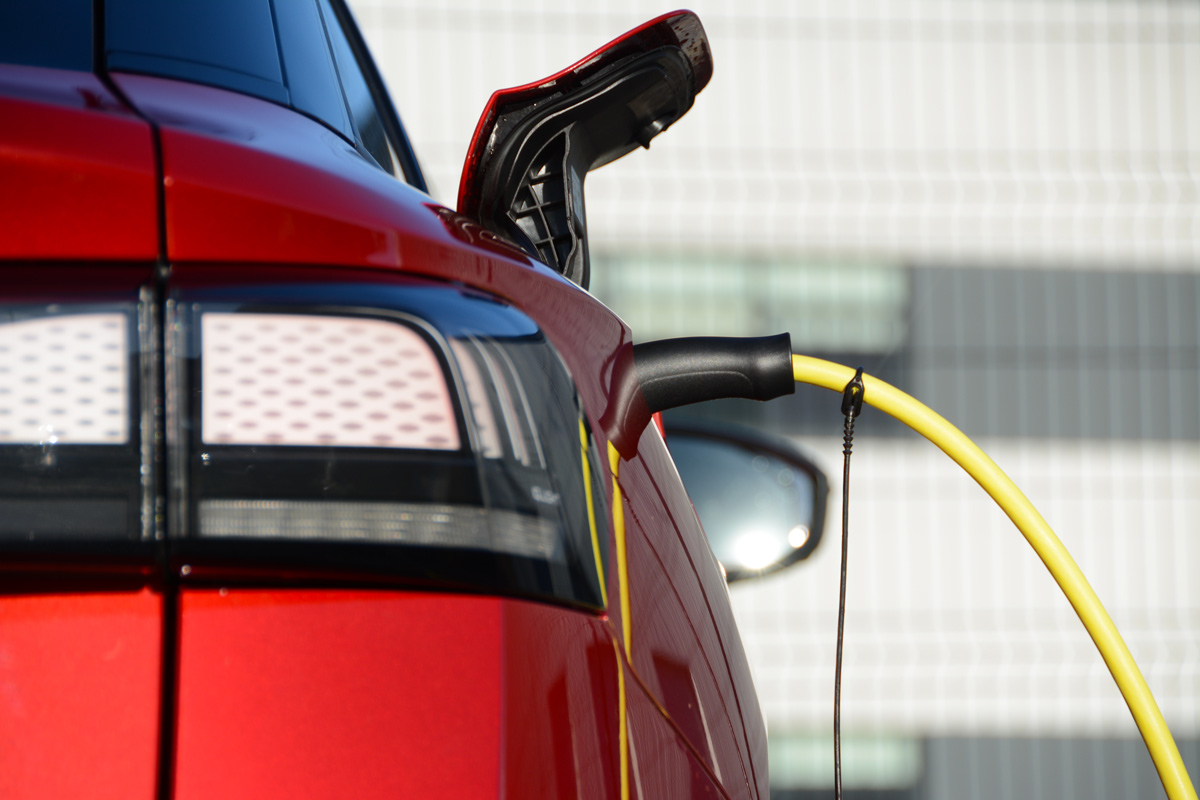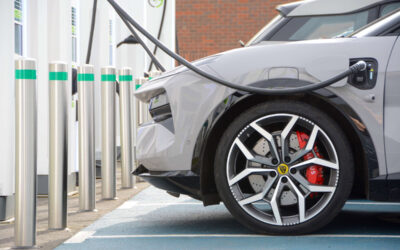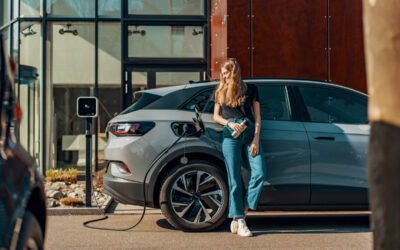Average cost savings of charging an electric vehicle (EV) at home is around half of the £1,205 yearly cost for fueling a petrol car.
However, the latest figures show that smart charging can reduce these costs to £400, and vehicle to grid (V2G) charging can slash annual EV charging costs to £250 – or even less. The cost savings can be magnified for fleets transitioning to EVs.
These latest figures have been revealed by CrowdCharge, from its fleet customers using smart charging technology, and from the company’s vehicle to grid customers at homes.
Smart charging an EV using technology that is available now has resulted in cost savings of around £200 per year compared to normal EV charging – as well as emission savings of up to 63% – representing a significant breakthrough for company fleets. CrowdCharge’s smart charging technology allows EVs to be charged with the lowest cost and lowest carbon electricity.
Figures from the company’s home-based vehicle to grid customers have shown that drivers can charge their EVs for just £250 per year – and sometimes for free when combined with home renewables such as solar – by charging at times when electricity costs are low and selling electricity back to the grid when costs are high.
Annual cost savings of £1000 using V2G
CrowdCharge’s V2G customers have been using Nissan LEAFs with CHAdeMO DC charging at homes, but a new V2G trial in workplaces – the V2VNY project – is using electric vehicles with CCS, which is now the standard technology on virtually all new EVs, using AC charging. The project uses CrowdCharge software to choose when to import and export electricity based on cost and carbon. V2G using AC charging isn’t widely commercially available at the moment, but is starting to be rolled out by car manufacturers over the next year.
These latest figures showing annual cost savings of up to almost £1,000 for fuelling EVs using V2G compared to petrol vehicles are all the more relevant against the backdrop of the current debate about the zero emission vehicle (ZEV) mandate and EV sales in the UK. EVs are widely reported as being more expensive than petrol and diesel vehicles, which may be true in many cases for the initial purchase price, but when whole life running costs are taken into account, EVs are typically cheaper than ICE vehicles.
The implications for fleets in terms of cost and emissions savings are significant. CrowdCharge’s technology allows companies to monitor and significantly reduce their carbon emissions from charging electric vehicles in the workplace. Harnessing artificial intelligence (AI), CrowdCharge enables accurate measurement of real-world EV charging emissions, which in itself can result in carbon savings of around 40% compared to standard EV emission reporting figures.
Industry-leading optimisation
Further carbon reductions of up to 25% can be made by using CrowdCharge intelligent AI-powered smart charging software. Latest data shows that fleets can achieve CO2 savings of 63% in total – with reductions of up to 89% in some cases. This represents a significant breakthrough which enables companies and other organisations with fleets to achieve game-changing improvements for carbon reporting and as part of their progress to net zero.
The industry-leading smart charging solution optimises the time at which an electric vehicle is charged based on the carbon intensity of the electricity generated by the National Grid, which in turn is influenced by the proportion of renewable energy used.
CrowdCharge’s technology can also help to reduce the need for grid upgrades for commercial sites by intelligently managing the charging of multiple EVs.
Mike Potter, CEO of CrowdCharge, says:
“The current debate about the zero emission vehicle mandate and electric car sales figures has resulted in a focus on what incentives should be offered to encourage people to buy EVs. EVs may be perceived to be more expensive than petrol cars based on their initial purchase price, but when you factor in the fuel price for EVs being either very low or potentially zero, the argument against EVs based on cost evaporates.”
Americo Lenza, COO of CrowdCharge, adds
“Our AI-driven software measures the carbon emissions involved in charging, and optimises charging to achieve the lowest possible carbon footprint, so ensuring that electric vehicles have significantly lower real-world carbon emissions – and fuel costs – than petrol vehicles.”
CrowdCharge, a unique AI-powered technology with patented optimisation tools developed via world-leading research within the energy industry, helps to unlock maximum value from V2X (vehicle to everything) services across individual vehicles to fleets and workplace ecosystems, enabling them to better predict and manage usage, and to save money and carbon.
The Innovate UK V2VNY vehicle to grid (V2G) project which is trialling V2G using AC (alternating current), a more affordable solution than vehicle to grid charging using DC (direct current), features partners including CrowdCharge and DriveElectric.
CrowdCharge is a sister company to DriveElectric, a leading EV leasing broker specialising in supporting the transition to electric vehicles for organisations on their journey to net zero.




